Peel-and-Eat Boiled Shrimp with Cocktail Sauce
This post may contain affiliate links. Read my full disclosure policy.
Simmered in beer and Old Bay, these Maryland-style peel n’ eat boiled shrimp are easy to make and fun to eat.
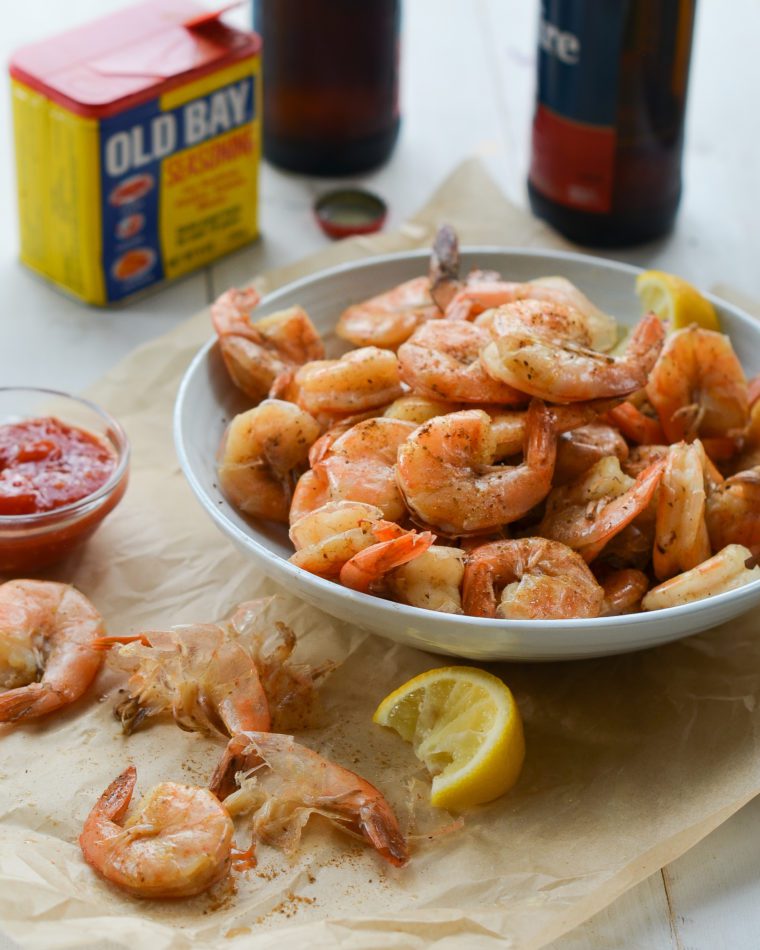
A summer tradition my family loves is eating at seafood shacks, where we sit around brown paper-covered picnic tables and feast on peel-and-eat boiled shrimp and crab cakes. Even better is recreating this experience with a seafood boil in the backyard. Boiled shrimp are not only incredibly quick and easy to make but also so much fun to eat! My favorite way to prepare them is Maryland-style: simmered in beer and Old Bay seasoning with homemade cocktail sauce on the side. You’ll be amazed by how much cooking shrimp in the shell maximizes flavor and helps retain moisture (it’s also less work for the cook!). The shrimp pairs beautifully with Chesapeake corn, tomatoes, and basil or any number of summery corn dishes.
“This is the best Maryland-style spiced shrimp I have ever had and I’m from MD!”
What You’ll Need To Make Peel-And-Eat Boiled Shrimp With Cocktail Sauce
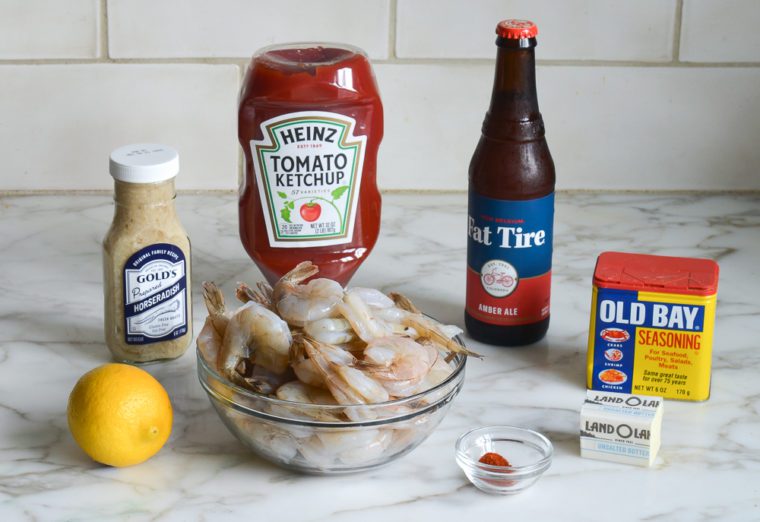
- Old Bay Seasoning: Adds a signature blend of bold, zesty spices that perfectly complements the shrimp. The primary spices in Old Bay are celery salt, red and black pepper, and paprika.
- Butter: Enhances the richness of the cooking liquid and adds a smooth flavor to the shrimp.
- Beer: Infuses the shrimp with a subtle malty flavor while helping to tenderize the meat.
- Water: Dilutes the beer slightly, creating a well-balanced poaching liquid for the shrimp.
- Extra Large Shrimp: The star of the dish, these meaty shrimp hold up well to boiling. I suggest frozen deveined shrimp, as most are cleaned and flash-frozen soon after being caught. Unless you’re right by the coast, the “fresh” shrimp in seafood cases is often previously frozen anyway, so it’s safer to buy frozen and thaw it yourself.
- Ketchup: Forms the sweet and tangy base of the cocktail sauce.
- Prepared Horseradish: Adds a sharp, spicy kick to balance the sweetness of the ketchup. Prepared horseradish can be found in the refrigerator aisle at your supermarket.
- Lemon Juice: Brightens the sauce with a touch of acidity.
- Cayenne Pepper: Adds a subtle heat for extra depth in the sauce.
- Jump to the printable recipe for precise measurements
Step-By-Step Instructions
Step 1: Make the Boiled Shrimp
Combine the beer, water, butter, and Old Bay in a large pot or Dutch oven.
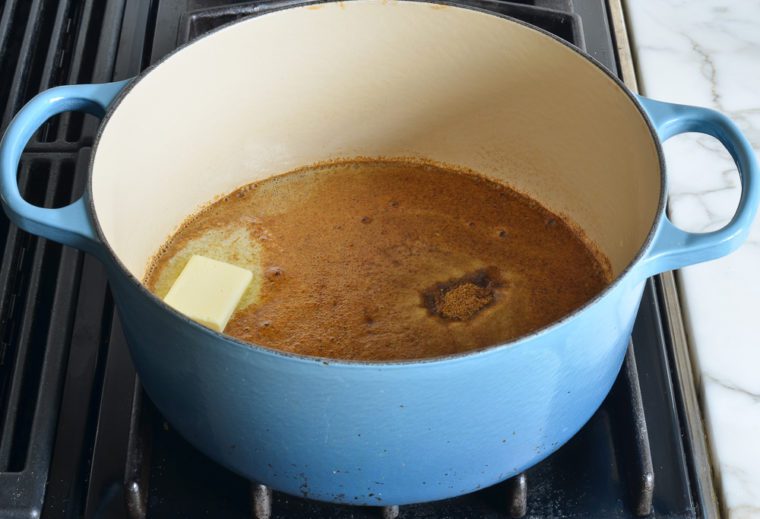
Bring the broth to a boil.
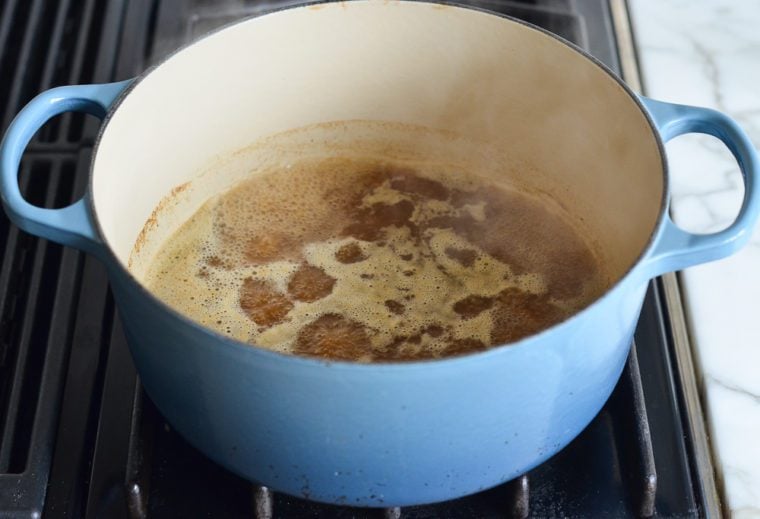
Add the shrimp, turn the heat down to medium, and cover with a lid.
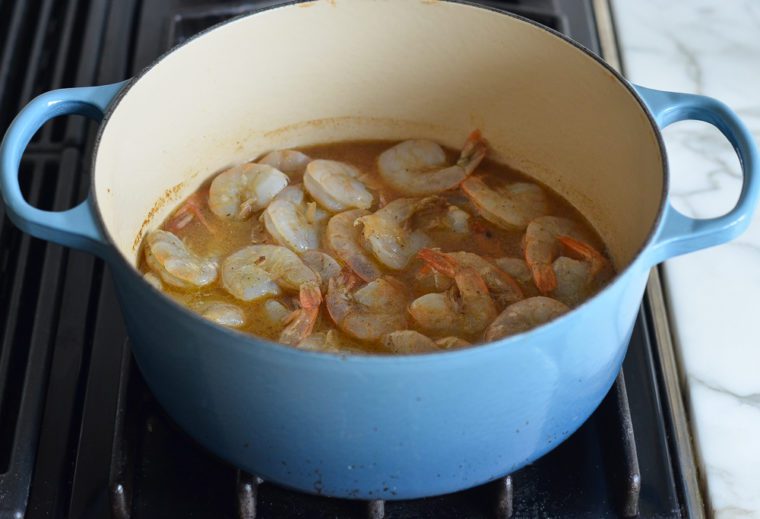
Cook the shrimp, for 3 to 6 minutes, or until the shrimp are pink but still tender. Stir once while they’re cooking.
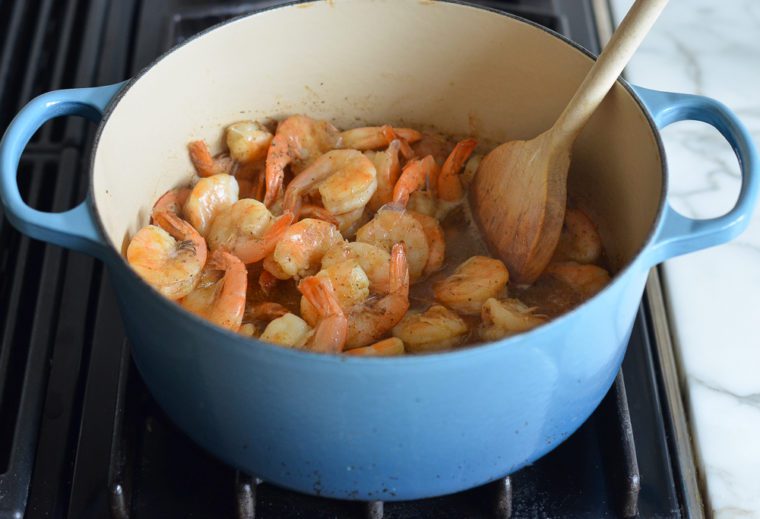
Step 2: Make the Horseradish Sauce
In a medium bowl, combine the ketchup, horseradish, lemon juice, and cayenne pepper.
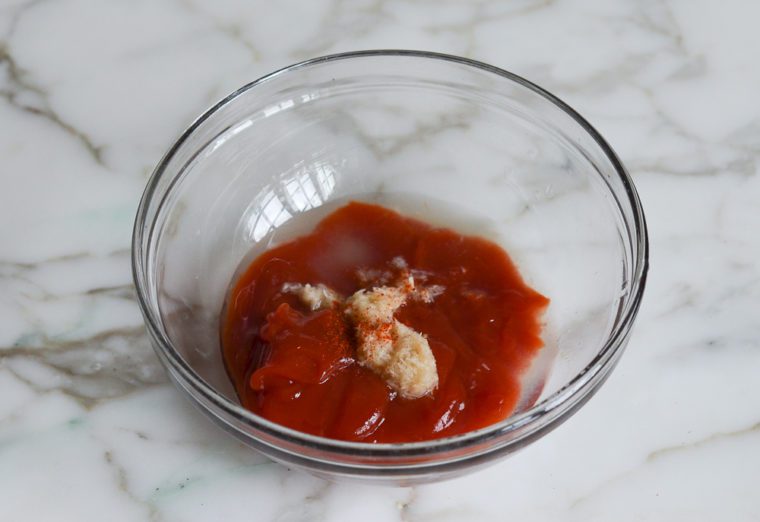
Whisk to combine.
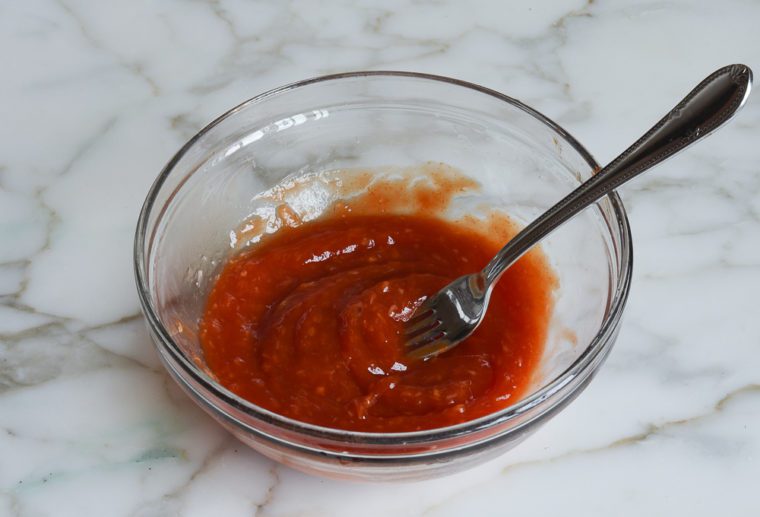
Use a slotted spoon to transfer the shrimp to a platter. Serve with beer, cocktail sauce and plenty of napkins.

Enjoy!
You May Also Like
Peel-and-Eat Boiled Shrimp with Cocktail Sauce
Simmered in beer and Old Bay, these Maryland-style peel n’ eat boiled shrimp are easy to make and fun to eat.
Ingredients
For the Shrimp
- 2½ tablespoons Old Bay seasoning
- 3 tablespoons unsalted butter
- 1 cup beer
- 1 cup water
- 2 pounds extra large shrimp (26-30 per pound), shell split and deveined, thawed if frozen
For the Cocktail Sauce
- 6 tablespoons ketchup
- ½ tablespoon prepared horseradish (see note)
- 1 tablespoon freshly squeezed lemon juice
- Pinch cayenne pepper
Instructions
For the Shrimp
- Combine the Old Bay, butter, beer, and water in a large pot and bring to a boil. Add the shrimp, turn the heat down to medium, and cover the pot with a lid. Cook, stirring once, for 3 to 6 minutes, or until the shrimp are pink and just cooked through. Using a slotted spoon, remove the shrimp from the broth and transfer to a serving platter. Serve hot or cold with cocktail sauce.
For the Cocktail Sauce
- In a small bowl, whisk together the ketchup, horseradish, lemon juice, and cayenne pepper. Taste and adjust seasoning, if necessary.
- Note: Prepared horseradish can be found in the refrigerator aisle at your supermarket.
Pair with
Nutrition Information
Powered by ![]()
- Per serving (6 servings)
- Calories: 220
- Fat: 7 g
- Saturated fat: 4 g
- Carbohydrates: 8 g
- Sugar: 4 g
- Fiber: 0 g
- Protein: 31 g
- Sodium: 344 mg
- Cholesterol: 259 mg
This website is written and produced for informational purposes only. I am not a certified nutritionist and the nutritional data on this site has not been evaluated or approved by a nutritionist or the Food and Drug Administration. Nutritional information is offered as a courtesy and should not be construed as a guarantee. The data is calculated through an online nutritional calculator, Edamam.com. Although I do my best to provide accurate nutritional information, these figures should be considered estimates only. Varying factors such as product types or brands purchased, natural fluctuations in fresh produce, and the way ingredients are processed change the effective nutritional information in any given recipe. Furthermore, different online calculators provide different results depending on their own nutrition fact sources and algorithms. To obtain the most accurate nutritional information in a given recipe, you should calculate the nutritional information with the actual ingredients used in your recipe, using your preferred nutrition calculator.

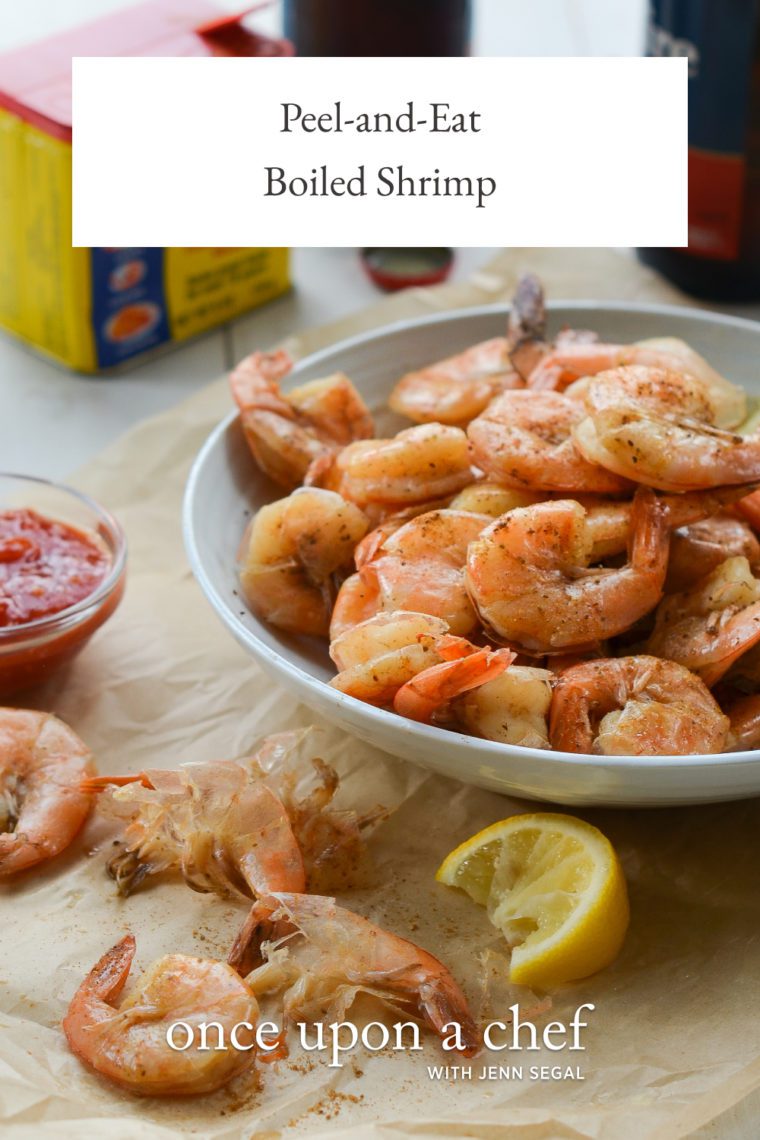
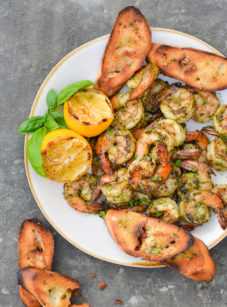
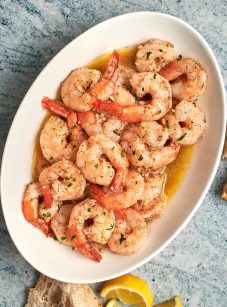
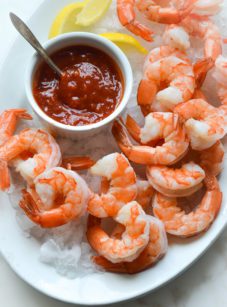
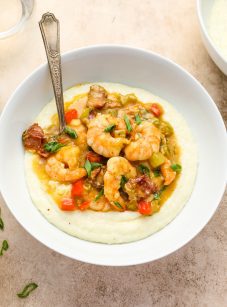
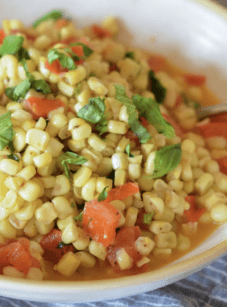
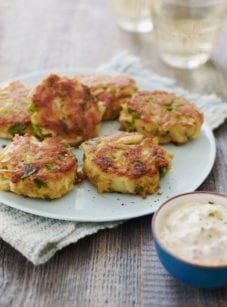
This recipe looks great, but I can’t figure out where all the sodium is coming from. The nutrition info shows it’s over 1,000 mg/serving. I have done the math and can’t figure out how they arrived at so high a number. Maybe someone can enlighten me.
Hi Barbara, I just plugged the numbers back into the software I use to calculate nutritional information and the original sodiumm count must’ve been a typo because the sodium per serving comes out to be 344 mg — quite a difference! I’m going to update the recipe now. Hope you enjoy if you make it!
This was an easy shrimp boil and it tasted so GOOD. Definitely will make again and recommend!
Hey Jennifer, your favorite retired US Navy guy here. Made this two nights ago. My “peel and eat” boil is way different with more “stuff” that I let sit in the pot at a high simmer for a good portion of the day. Makes the house smell good. So no comment on yours good or bad. Anyway, the sauce was really good as I always make my own. We weren’t sure that we would like the amount of horseradish, but it was perfect. I did put more cayenne in but that’s just us. Keep it up, you are my go-to for ideas.
Jon
US Navy Retired
This has been on my list for a while, and I finally made it – it was so good!! Super easy to make. I will definitely be making my shrimp this was again! I feel like I could have eaten the whole batch, but I did share!!
So I read the reviews. Thought it sounded great. I don’t know what I did wrong.
Shrimp seemed fresh from Central Market when I was unpacking them. And I’m very picky. So if know when shrimp aren’t fresh. But I did exactly as recipe called for I promise and shrimp were mushy at the head which was strange.
I cooked 6 minutes.
Not sure what I did wrong. Any thoughts?
The only thing that could’ve potentially gone wrong with you cooking for the maximum amount of time is that they’d get overcooked, but that would have made them tough – not mushy – so the only thing that I think could cause the issue would (sadly) be the shrimp.